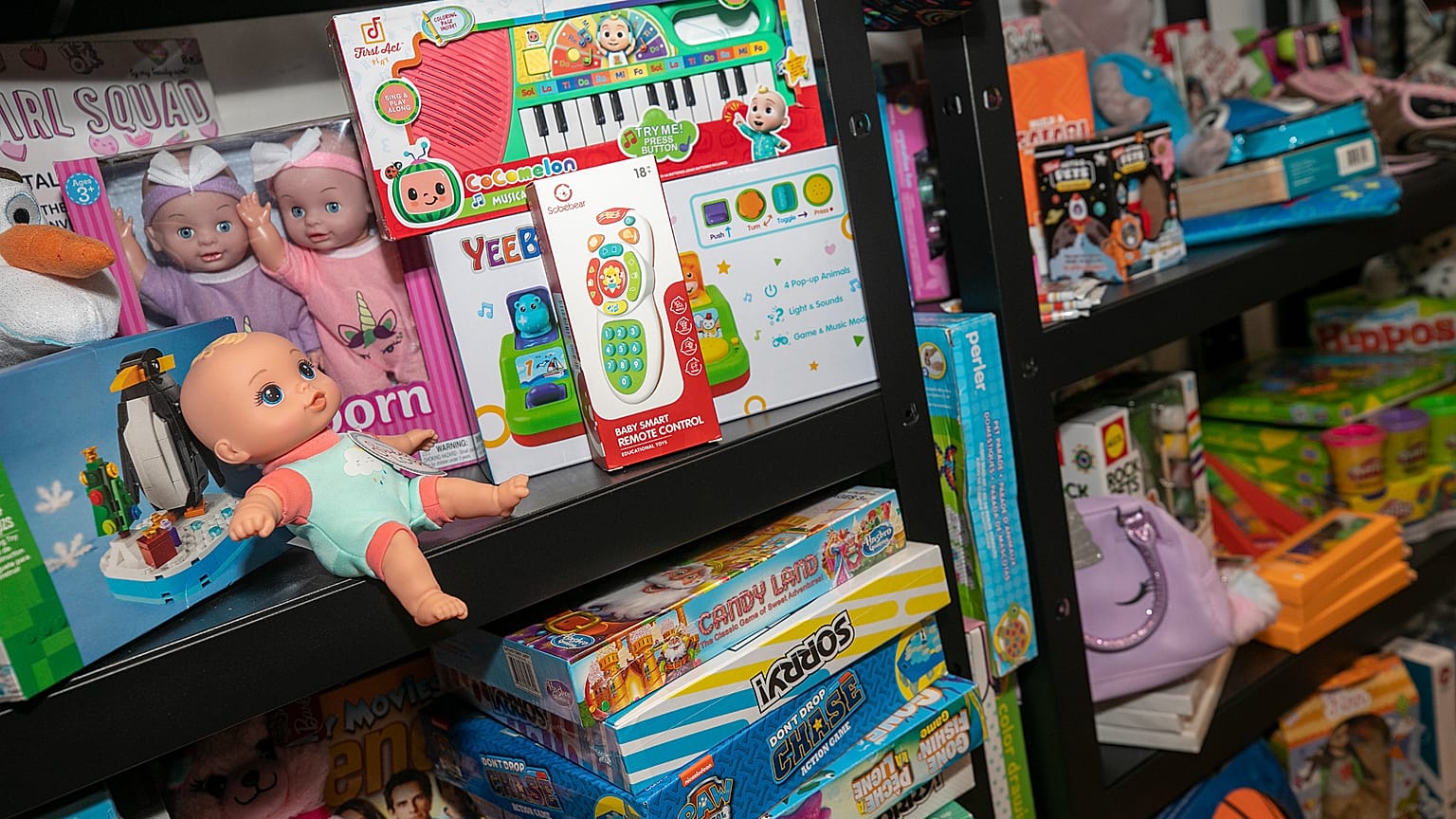The European Council has approved new rules to regulate the safety of toys, introducing a digital passport to better trace toys sold online and banning chemical substances harmful to children.
A whistle bought from a Chinese global retailer that may put children at risk of choking and strangulation due to a long cord, slime containing boron, which can damage the reproductive system, and magnetic toys that risk being ingested are just some examples among the products assessed by Toy Industries of Europe in their study about EU safety rules.
 ADVERTISEMENT
ADVERTISEMENT
 ADVERTISEMENT
ADVERTISEMENT
Toy Industries of Europe, the European association representing the leading toy manufacturers, says it purchased over 100 unbranded toys through online marketplaces such as AliExpress, Amazon Marketplace, Shein and Temu and found that 80% of the toys failed to meet EU safety rules.
To address this, under the new rules approved on Monday, all toys will require a digital product passport, allowing consumers and regulators to check each toy’s compliance with EU laws.
Importers will have to submit digital product passports at EU borders, including for toys sold online. A new IT system will screen all digital product passports at the EU’s external borders and identify shipments requiring detailed customs controls.
The European Parliament must now approve the text before it enters into force, and the new rules will fully apply after a transition period of 4.5 years to give the industry time to adapt to the new requirements.
“This will streamline actions against unsafe toys in the EU and ensure that all toy manufacturers can compete equally and fairly”, stated the European Council after the approval.
Sylvia Maurer, director of advocacy coordination at the consumer organisation BEUC, told Euronews that introducing a digital product passport is an important first step towards improving the traceability of toys and making market surveillance and customs checks more efficient.
However, she added that "authorities should be able to hold online marketplaces accountable for non-compliant toys sold via their platforms when no other responsible economic operator can be identified."
Various studies have shown that many toys purchased outside Europe, mostly via online platforms, fail to meet EU safety standards.
BEUC’s own investigation into Temu claims that the Chinese online marketplace “is an entry point for dangerous products in Europe.”
Temu has long been under investigation for breaching European rules. In July this year, the European Commission found that the e-commerce platform was in breach of the Digital Services Act (DSA) for failing to properly assess the risks of illegal products sold on its website.
New banned chemicals
The newly adopted regulation also expands the ban on carcinogenic, mutagenic and toxic-for-reproduction chemicals in toys to include other hazardous substances such as endocrine disruptors.
Endocrine disruptors are chemicals that interfere with regular hormonal activity in the body, such as bisphenols and phthalates. Exposure to them can be dangerous even at very low doses and may have effects later in life.
Because the endocrine systems and brains of children are still developing, they are particularly susceptible to substances that affect their growth.
Exposure to endocrine-disrupting chemicals has been linked to declining sperm counts, an increased number of children born with congenital malformations, and rising cases of certain types of hormone-sensitive cancers.
The text also introduces a limited ban on the intentional use of PFAS – harmful “forever chemicals” linked to cancer and other serious health risks – in toys, with exemptions for components necessary for electronic or electrical functions where the substance is entirely inaccessible to children.
The forever battle against forever chemicals
The ban on PFAS is a recurring topic on the EU legislative agenda, but it has not yet reached a final decision.
Denmark, Germany, the Netherlands, Norway and Sweden jointly submitted a proposal to the European Commission in 2023 to ban the production, sale and use of almost all PFAS under the EU’s REACH regulation. This legislation governs the production and use of chemical substances and their potential impacts on human health and the environment.
As the Commission prepares to revise its chemicals legislation in 2026, calls for this ban are increasing.
“Like many other citizens across Europe, I have PFAS in my body. I tested positively on six out 13 PFAS, including some that are classified as toxic for reproductive health,” said European Commissioner for Environment Jessika Roswall after being recently tested.
"This only strengthens my resolve to keep working for stronger action at the European level. My priority is to work for a quick EU-ban on PFAS in consumer products”, she added.
At the time of publication, Temu had not replied to Euronews’ request for comment.

















